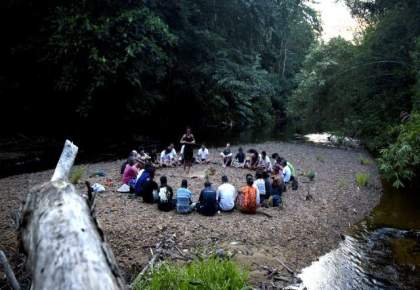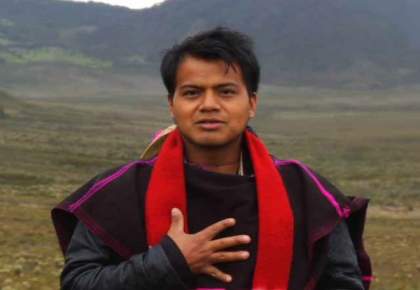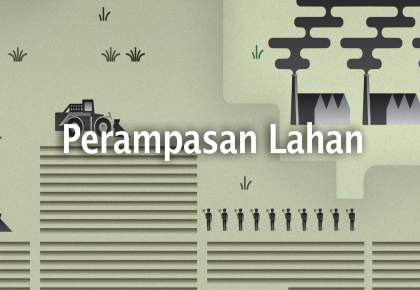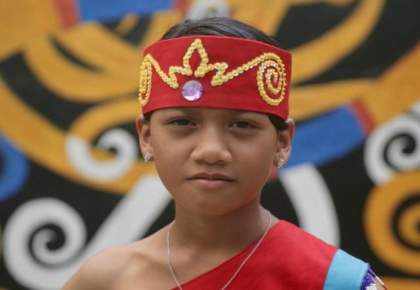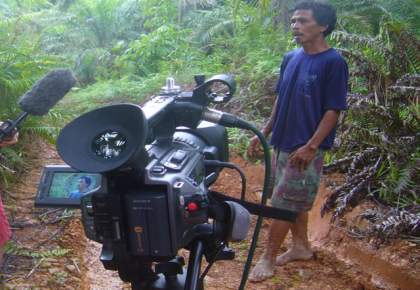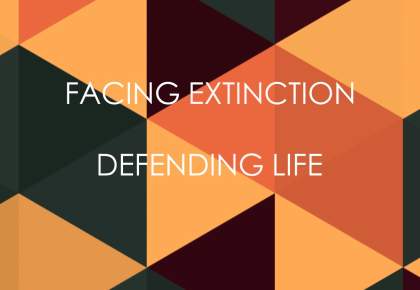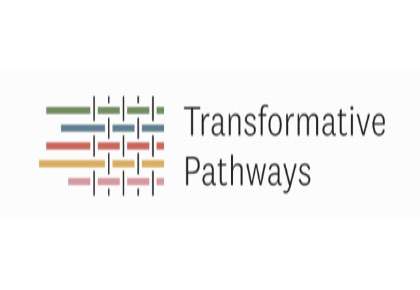Self Determined Development
-
Self Determined Development
Increasingly indigenous peoples are developing and implementing their own approaches to self-determined development in order to maintain and revive their knowledge systems and practices, protect their territories, and re-envision and reclaim their futures. There are many forms and approaches bring prcaticed around the world - Plan de Vida / Life Plan, endogenous development, development with identity, biocultural community protocols are some such examples.
To date however, there has been limited exchange of information and learning between these approaches, and limited dialogue between practitioners.
Our current work includes connecting and sharing stories of indigenous communities determining their futures and implementing their visions of development rooted in their cultures and knowledge systems. One aspect of this is developing a toolkit to showcase these inspirational stories.
Life Plan (HD) from LifeMosaic on Vimeo.
What is the 'Life Plan'
We are working closely with indigenous Misak leaders in Colombia to learn from and shae the 'Life Plan' approach to self determiend devlopment with communities and practicioners in Indonesia and Scotland. The Life Plan process is a long-term community-led process that aims towards self-determined community resilience and wellbeing. It is based on learning from the past, critically analysing the present, and planning deep into the future. The approach was first developed in the 1980's by the indigneous Misak from the Colombian Cauca as a way to reclaim their self-determined futures. During this process, the Misak have gained formal recognition of rights over 15,000 hectares of their ancestral territory, they have revived their leadership and governance structures; re-learnt their traditional culture, practices and language; and pursued an autonomous vision of their collective community future including their own systems of healthcare, land governance, communication, and education.
The Misak example has inspired hundreds of other indigenous peoples across Latin America and beyond to develop their own Life Plans, led to the amendment of the Colombian constitution, and pushed the boundaries of how government interacts with self-determining indigenous territories.
Who are the Misak?
The Misak are an indigenous people from the Colombian Cauca who have successfully reclaimed their land, their collective future and their cultural identity against all odds. In doing so they developed the Plan de Vida or Life Plan, an exceptional approach to long-term visioning and planning that supports communities to take control of their futures.
During Spanish colonial rule, they were displaced from large parts of their territory, stripped of their ancestral land, with their culture and mother tongue threatened with extinction. The past fifty years of civil war in Colombia have meant the Misak have had to deal with perpetual conflict, with the army, paramilitary forces and guerrilla regularly passing through or fighting in their territory. Despite this background of violence, the Misak held steadfast to a constant practice of peace, reclaiming much of their ancestral territory from their colonial era landlords in the 1970s.
Scotland
In April / May 2018, Misak indigenous leaders Jeremias Tunubala and Liliana Muelas will be visiting Scotland to share their experience of the 'Life Plan'.
The Misak people of the Colombian Cauca have successfully reclaimed their land, their futures and their culture against all odds. In doing so, they have developed the 'Life Plan', an exceptional approach for communities to re-envision and take control of their futures. Pioneered by the Misak in the 1980s, the approach was later adopted by hundreds of indigenous peoples across South America.
Jeremias came briefly to Govan last year and the visit had a big impact on him, with the great Govan welcome and the realisation that in Scotland, as in his homeland, there is also the trauma of displacement and cultural homogenisation, and a yearning for retaking control of communities' futures.
When Liliana and Jeremias were offered an opportunity by the Colombian government to tell their story anywhere in the world, they chose to come to Scotland, where in their words, ‘they hope to share their experiences with Scottish communities engaged in reclaiming memory, reviving knowledge, and rebuilding community.’
-
Life Plan
Life Plan
The Misak are an indigenous people whose territories are located in Cauca, Colombia. As with many indigenous peoples in Latin America, the Misak lost large parts of their territory during colonial rule. In the 1970s, they started a process of land reclamation and were eventually successful in gaining formal land rights recognition. Since then the Misak developed Plan de Vida as a tool for self-determined development to ensure their gains would be preserved for future generations.
Misak Education: Decolonising the Mind
Misak Education: Decolonising the Mind
The Misak indigenous people, from the south of Colombia, experienced almost complete cultural, territorial and linguistic loss, before taking back their ancestral lands in the 1970s, going on to rejuvenate their culture, reclaim their traditions and strengthen their autonomy. Today 95% of Misak speak their mother tongue. Nine out of ten youth who leave the territory, return. How have the Misak done this? And what role has their own indigenous education system played? (LifeMosaic 2019)
Samabue: The Seeds of Indigenous Education in Indonesia
Samabue: The Seeds of Indigenous Education in Indonesia
The seeds of indigenous education in Indonesia - Samabue Indigenous School was set up in 2016 in West Kalimantan. It runs as an after-school club to serve indigenous children who attend the mainstream government run school and focuses on giving children a rooting in their own traditional knowledge and culture. Teachers are indigenous volunteers and local elders who foster communication between the generations. (LifeMosaic 2019)
TUGDAAN - An Indigenous High School
TUGDAAN - An Indigenous High School
The TUGDAAN Mangyan Center for Learning and Development is an educational institution dedicated to serve the 8 Mangyan tribes of Oriental and Occidental Mindoro, The Philippines. Tugdaan High School, for children aged 11-18, was set up in the community of Paitan in 1989 after many discussions with the elders who had reflected that they are being discriminated against and tricked by lowlanders and felt this was due to their education levels being very low. They developed their dream to educate their youth without compromising their deeply rooted cultural beliefs, knowledge and practices. (LifeMosaic 2019)
-
Self Determined Development News

LifeMosaic is hiring
Do you want to join LifeMosaic's dedicated team? We are seeking a Programme Officer to support indigenous movements in Indonesia. Deadline for applications is 16th September 2019.

The Hawaiian language revival
Reflections on Hawaii's inspirational native language revitalization movement (By Keala Carter: Source Intercontinental Cry)

The EU’s last indigenous peoples fight for self-determination and land rights
Heikki Paltto, a reindeer herder and vice president of the Finnish Sami Parliament, says that indigenous communities should be taken into account when big projects are planned by the state. (Source: Equal Times)
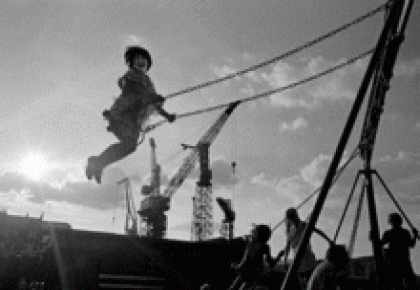
Take Part in a Plan de Vida Workshop in Govan, Glasgow
We invite you to to take part in a unique two-day event joining Misak leader Jeremias Tunubala, The GalGael Trust and LifeMosaic in Govan, Glasgow. Open to all community members and practitioners engaged in community-led approaches, please sign up to attend on the 17th & 18th of November. We are also holding our ten year celebration at Galgael HQ after the Friday session - All welcome!
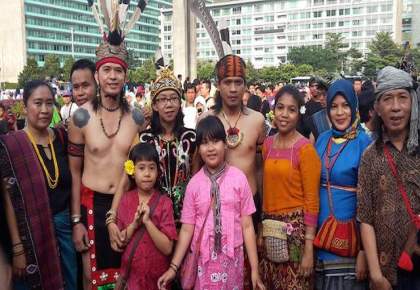
World Indigenous Peoples Day 2016
LifeMosaic took part in celebrations held in Jakarta for World Indigenous Peoples Day.
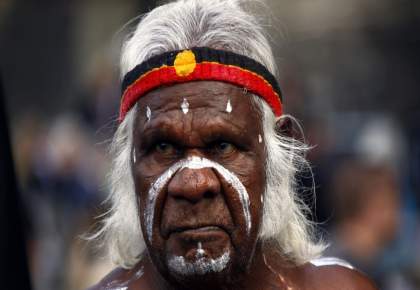
When languages die, ecosystems often die with them
You probably know that much of the world's environment is under threat. But a new study says languages are disappearing alongside plants and animals. (Source PRI)
-
-



